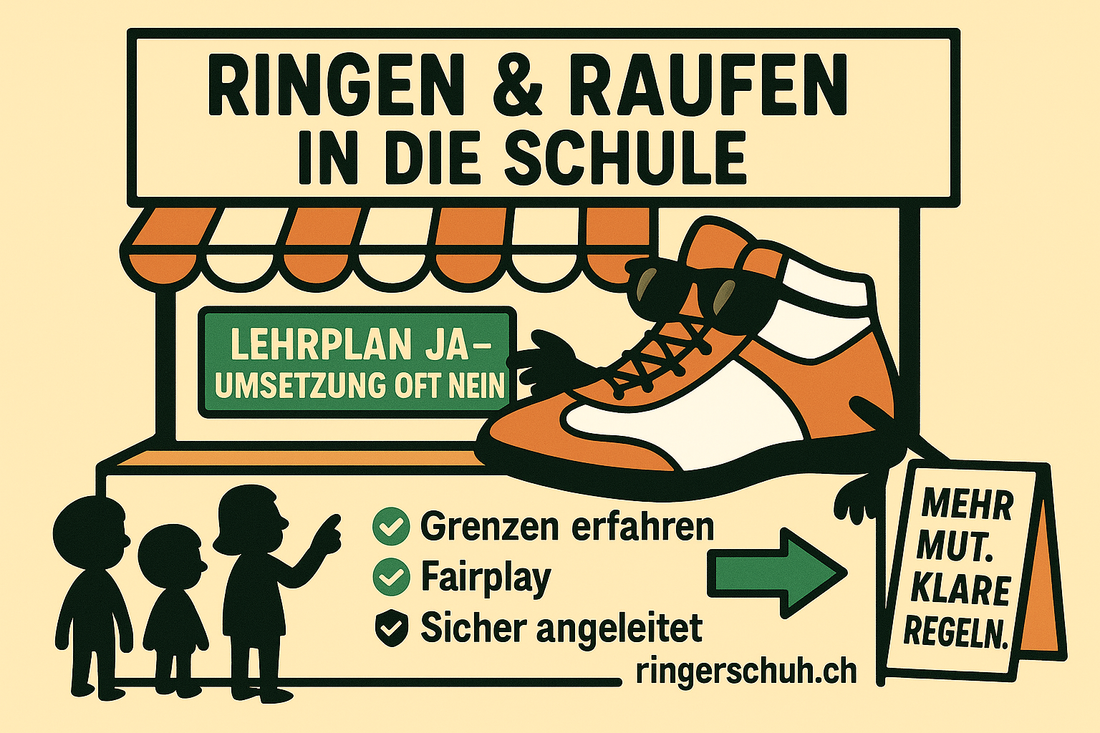
Fighting & wrestling belongs in school
Share
Fighting and grappling , or wrestling and grappling, is a central component of modern physical education: It strengthens body awareness, the application of force, respect, rule awareness, and conflict resolution skills. This topic is anchored in the Swiss Curriculum 21 ( Syllabus 21) – curriculum: yes. Implementation: often no.
Problem: In many schools, fighting and roughhousing are neglected – due to insecurity, time pressure, or prejudice ("too wild," "too risky"). As a result, children and adolescents miss out on important, controlled experiences with closeness, boundaries, and fair play.
Why wrestling is the ideal implementation:
- No punches, no kicks – the focus is on grips, holding, and releasing.
- Clear, verifiable rules (stop signal, tapping, fair play).
- Safely structured : age and weight appropriate, on mats, with defined start and end positions.
- Competence-oriented : self-control, responsibility, respect for one’s partner.
Concrete impulse:
- Class visits to wrestling clubs: Schools can conduct a physical education lesson as a wrestling training session – with clear rules and safe guidance. This way, children and young people become aware of their own limits , learn to respect them, and take responsibility in one-on-one combat.
- Education instead of omission: Informed decisions and simple, practical materials help to break down inhibitions and put the curriculum into practice .
- Positive culture: A fair physical comparison is a natural part of a diverse physical education program – not just on the sidelines.
- Appeal: Wrestling clubs in Switzerland should proactively approach schools and raise awareness of the topic; schools should also find their way into the clubs to make wrestling and roughhousing a tangible experience. Only in this way will the topic receive the attention it deserves in the curriculum.

